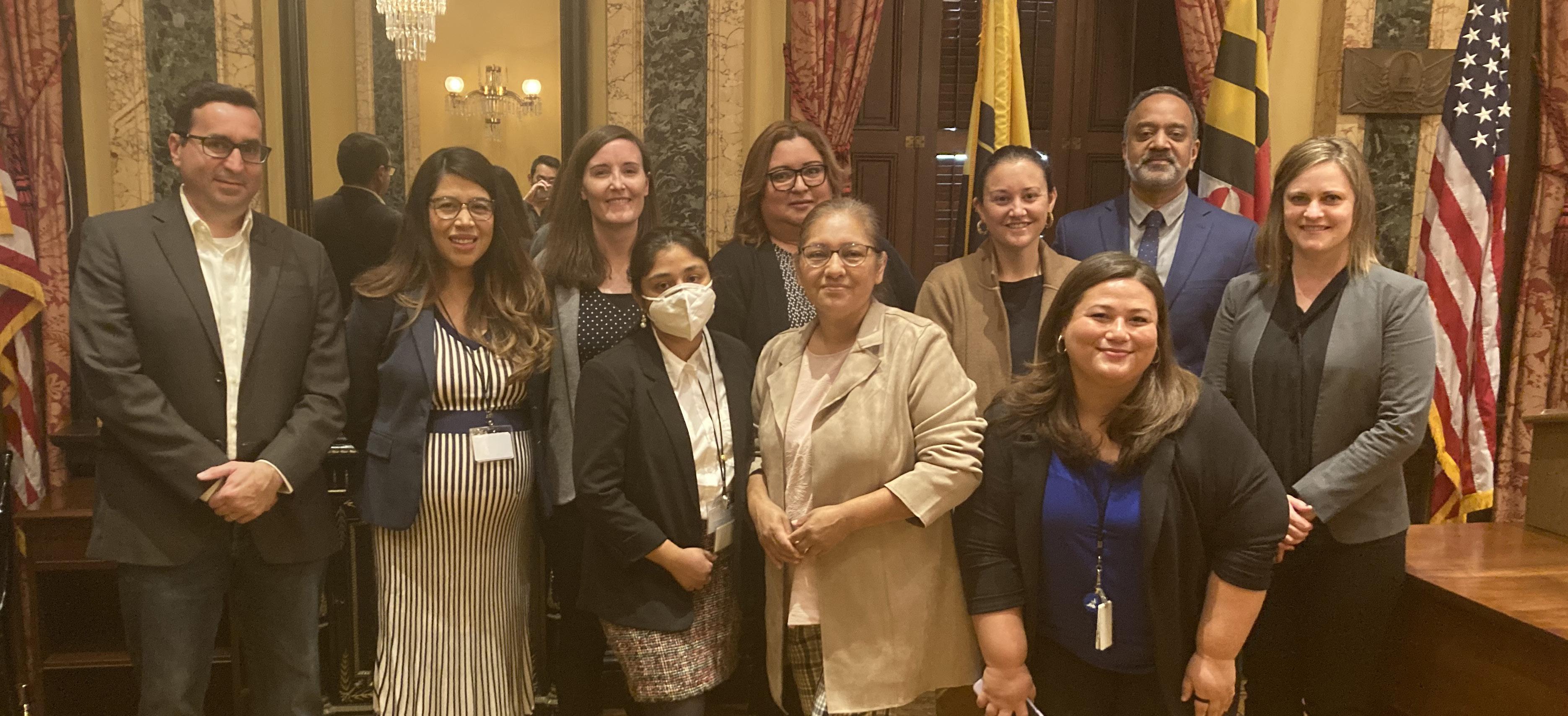
2 minute read
CLIENT STORY: WALESKA
Waleska* and Pedro* are Spanish-speaking immigrants and the parents of four children. They moved to Baltimore from New York two years ago to establish a new church. When they moved to Baltimore, they used their savings to buy a new home. As they developed the new church and attracted parishioners, the family went several months with very little income. Waleska and Pedro stayed on top of their mortgage but struggled to keep up with other bills. After months of hardship, their water bill balance was almost $10,000 and they were afraid their service would be shut off. Then Waleska learned about the Family Stability Program through their younger child’s school. After enrolling, the Family Stability case manager assisted the couple in applying for a state water assistance program, which paid part of their balance. The case manager then taught the family how to set up a payment plan with the city for the remainder of their balance. The case manager and the family created a monthly budget to get a better sense of their income and expenses. After reviewing this budget, Waleska took steps to increase the family income by starting her own business selling food and crafts. Between these sales and the increased membership at the church, the family now can cover all their basic needs. When Waleska and Pedro graduated from the Family Stability Program this past summer, they were not only on track to cancel their debt but were avoiding future debt by employing better spending and savings habits.
*Name changed for privacy.
Advertisement
CLIENT STORIES: EVICTION PREVENTION
Luz* is a Spanish-speaking immigrant and single mother. At the beginning of the pandemic, Luz could not work because she had to care for her three young children. She fell behind on her rent. She reached out to Southeast CDC for help and our case manager connected her with Baltimore City’s rental assistance program. Luz’s rental company was resistant. The city’s rental assistance program requires cooperation from the landlord, but every time our case manager contacted them, she got no response. In the meantime, Luz received an eviction notice. Our case manager did not give up; she continued contacting the company until she finally got them to agree to cooperate with Luz’s rental assistance application. Finally in January 2023, Luz’s application was approved, and her eviction was canceled.
Ana* is a single mother and Spanishspeaking immigrant. When the pandemic began, Ana lost her job. For a few months she paid rent with savings but then the money ran out. At first, Ana had to stay home and help her daughter with virtual learning, but after schools reopened, Ana quickly returned to work. Even with the new income, Ana could not catch up on all the back rent she owed, so she turned to Southeast CDC for help. We helped Ana apply to the city’s rental assistance program, including advocating to Ana’s landlord on her behalf. The city approved Ana’s application and provided nine months of back rent. Ana was so relieved to no longer live in fear that she and her daughter would lose their home. Without the help of a case manager, Ana wouldn’t have overcome language and technology barriers to apply.
Since 2020, Southeast CDC, in partnership with Baltimore City, has helped non-English speaking residents access and apply for the city’s pandemic rental assistance program. In two years, we submitted 353 rental assistance applications on behalf of clients.
In 2023, Southeast CDC will build on the success of this eviction prevention work through our new partnership with the Baltimore New American Access Coalition (BNAAC). BNAAC is a partnership with city government that will allow Southeast CDC to further support the financial and housing stability of our immigrant neighbors by helping them apply for not only rental assistance, but other support programs as well, such as food stamps and energy assistance.









